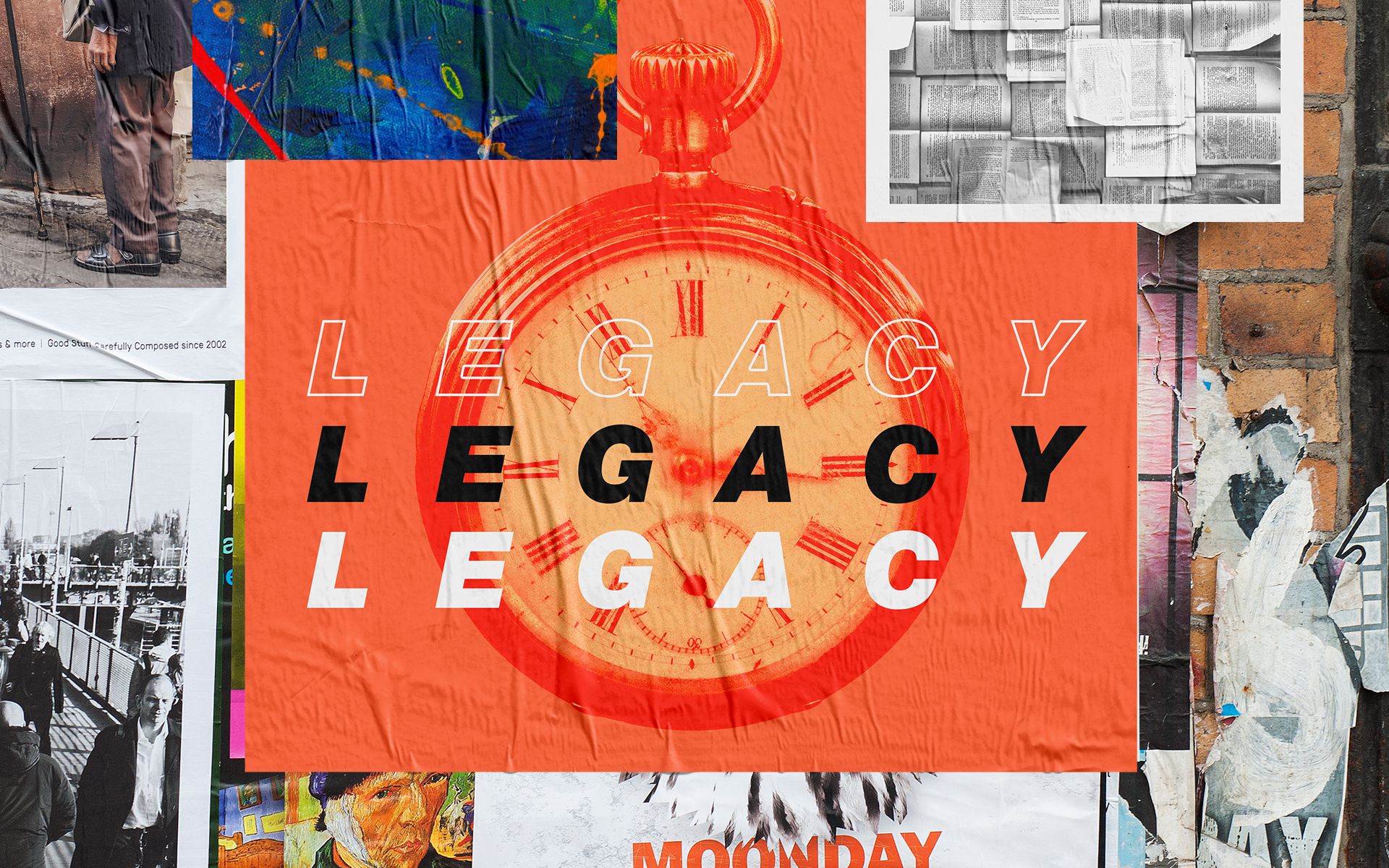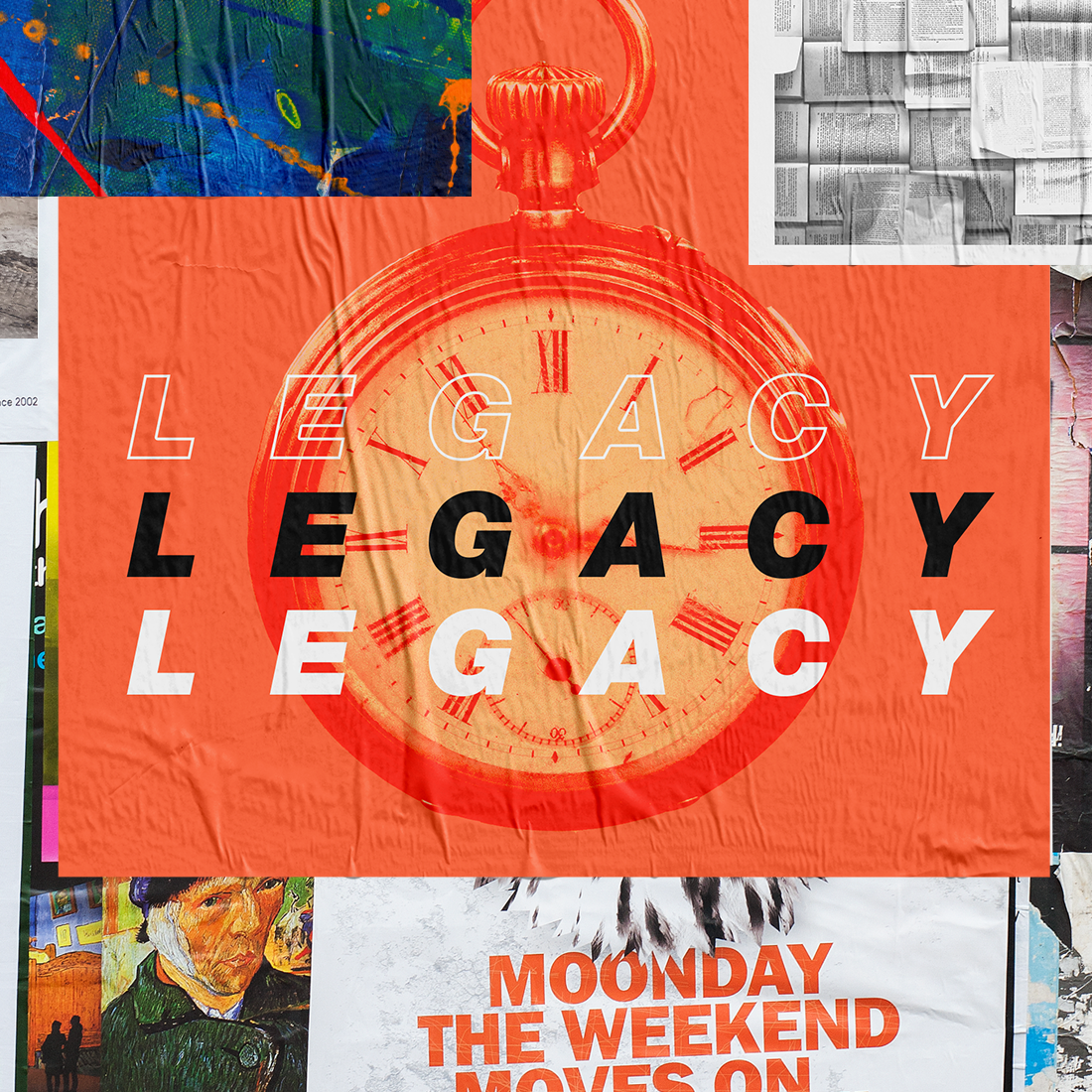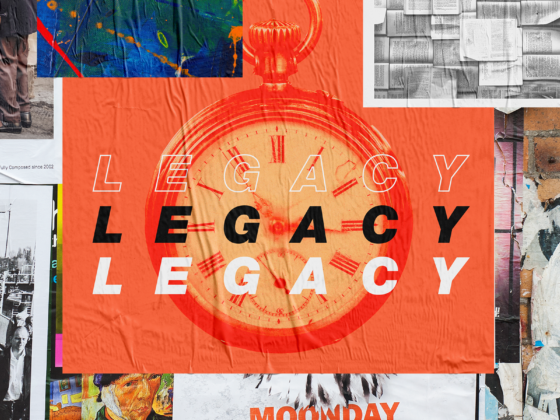BRENDAN QUINN
Who’s going to get your stuff when you die? Seriously — if you died tomorrow, who would you want to receive the laptop or smartphone on which you’re reading this article? People generally don’t walk around pondering this morbid question (for many good reasons), but it’s very important. No one knows when they are going to die, so if it happens completely unexpectedly and you don’t have a will, the harsh reality is that you will likely have little to no control over the distribution of the things you leave behind.
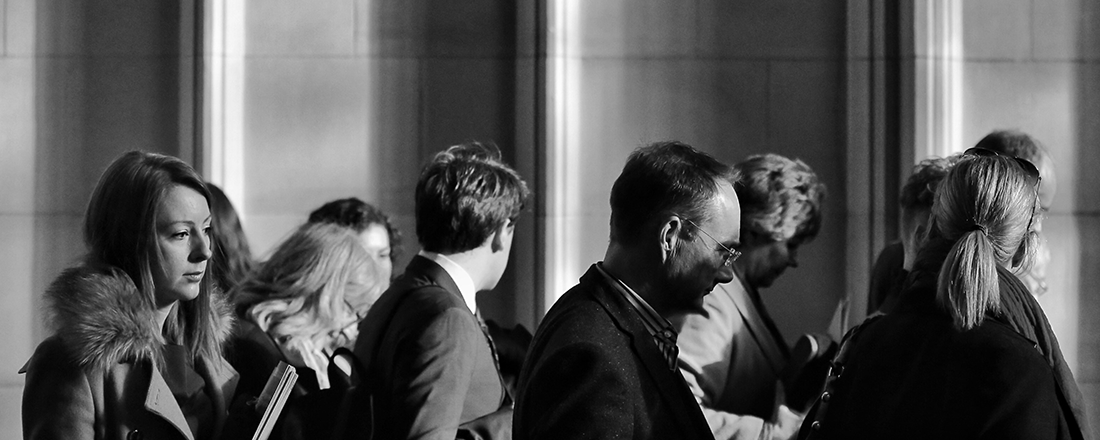
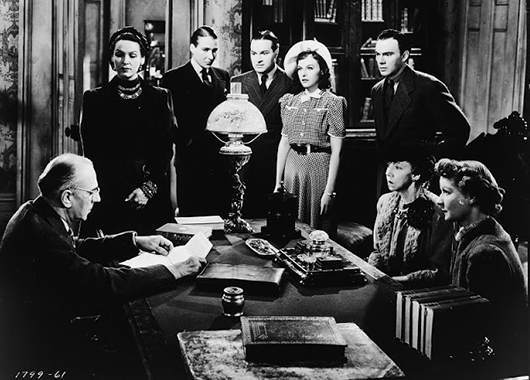
Scene from the 1939 murder mystery film The Cat and the Canary where the will of millionaire Cyrus Norman is being read | Source: Mind of Atlock
Most people don’t know that much about wills, apart from how they are portrayed in popular culture. The archetype is familiar:
A wall-to-wall mahogany library filled with dozens of somber family members dressed in black. The family lawyer enters and goes to the front of the room carrying important looking pieces of parchment paper. Silence falls over the already hushed crowd.
The lawyer clears his throat and begins reading, “Herein contains the last will and testament of A. Mann…” The lawyer reads that Mr. Mann has left the family mansion to his loving and caring wife, his stable of racing horses to his beloved daughter, and “nothing to my spendthrift and irresponsible son.” The lawyer pauses, then reads, “I hereby leave all the rest, residue, and remainder of my estate to Susan Secret, who has been so kind to me during the twilight of my life.” Loud gasps — Susan Secret? Mr. Mann’s secret lover?! Mrs. Mann faints, the disinherited son starts shouting, the cousins who thought they deserved something stand up, and the room devolves into chaos.
Most people want to be remembered — and remembered fondly — when they die. No one’s goal is to have their families’ personal drama end up in a law school textbook to be picked apart and analyzed.
As an undergraduate theatre major turned *almost* lawyer (please God let me pass the bar exam), it’s been fascinating to compare how different areas of the law match up to their cultural representations in film, television, and literature (looking at you, Law & Order, Legally Blonde, and How to Get Away with Murder). For example, the dramatic “will reading” I described above almost never happens anymore and is certainly not required; today if someone leaves you something in their will, you simply get a letter in the mail.
I grew up around wills, so their portrayal in popular culture is especially amusing to me. My maternal grandfather was an attorney and my mother took over his law firm in my hometown when he died. Most of her practice involves the legal issues that everyday people confront — issues like wills, divorces, and the purchase and sale of property. As a result, I grew up hearing stories about her clients at the dinner table and I even served as a witness during the signing of some wills when I was older.

Growing up, I was aware that the portrayal of wills in media was mainly for dramatic effect. Now that I’ve learned the mechanics of will drafting during law school, I know that making a will is a fairly straightforward, albeit ritualistic, process — at least from the client’s perspective. The general process is this: the client tells their attorney how they want to distribute their estate and the attorney drafts a will, ensuring that the words in the document not only achieve those goals but also avoid common pitfalls that may void the will later. Once this is done, the attorney calls the client and some witnesses to the attorney’s office, so that they all can “execute” (i.e., sign) the will. A valid will must be signed by the “testator” (i.e., the person making the will) and at least two or three witnesses, all of whom watch each other sign the will and sign in each other’s presence. This ensures that all the requisite will formalities are met — formalities like (i) that the testator truly intended to make this document his or her will, (ii) that the testator created the will freely and voluntarily, (iii) that the testator was of sound mind when he or she signed, and (iv) that the testator and witnesses all actually signed the will in each other’s presence.
It’s very formalistic (and somber given the subject matter), but this performance ensures that the attorney has satisfied something called “the Statute of Frauds.” This law is found in all states and seeks to root out fraud by mandating that certain transactions be transcribed in a writing signed by the parties to the transaction in order for it to be enforceable. A will is one of these transactions and satisfying the Statute of Frauds is particularly imperative in this context. Failure to satisfy the Statute of Frauds risks invalidating the whole will, a fraught situation that would only come to light after the testator has already died. If the will were invalid, the testator would then die “intestate” — that is, without a will — which means that the testator loses control over the distribution of their estate. The estate would instead be distributed according to the state’s mechanical and bloodline-centric intestacy laws, which are essentially a state government’s decisions about how the person most likely would have wanted to distribute their estate. Therefore, while a will signing may feel formal or serious to the average person, this performative ritual reassures the client that their assets will be distributed as they have directed. As my Wills professor often said, “Clients love the performance of this — and it makes sure you don’t mess it up.”
[A will is] your last chance to speak beyond the grave to tell your family and friends how much they meant through the gifts you leave behind.
While the signing ceremony seems simple, the legal document of the will itself can and will be very nuanced to accomplish whatever the testator wants. Since a will allows you to impose conditions on how you’d like your assets distributed, the complexity of your will can reflect the complexity of relationships you develop during your lifetime. Unfortunately for estate attorneys, the more complex the will, the more maddening the legal rules and vocabulary.
The underlying legal doctrine for wills is called “Estates and Future Interests” and involves concepts that most of us regularly engage with in our daily lives, despite its antiquated label. Estates and Future Interests concerns the various types of ownership interests that a person can have in personal property and real property (i.e., land) and how an owner can transfer those interests to someone else during life or at death. What does it mean to “own” your laptop or your car? What happens when you “sell” your desk on Craigslist? What happens when your parents “leave you” their home in their will? The answers to those questions are found in the law of Estates and Future Interests.
Estates and Future Interests | Source: Camille Desai/YouTube
These concepts are traditionally taught during the first-year Property course mandatory at most law schools, but they more critically form the prerequisite knowledge of an upper-level course in the law of wills and intestacy. Nonetheless, most lawyers just shudder at the phrase “Estates and Future Interests” (and skip the upper-level course) because this subject area is notorious for its archaic vocabulary and byzantine concepts. Some thrilling examples:
Arthur leaves his car “to my best friend Brian for as long as he needs it to commute to work.”
Arthur had a fee simple absolute in his car, but gifted to Brian a fee simple determinable, while retaining a possibility of reverter for his estate.
Anne leaves her family jewels “to my daughter Betsy for life, and then to my granddaughter Carrie unless she has married her boyfriend Doug, in which case to my niece Ellen.”
Anne gifted a life estate to Betsy, a vested remainder subject to complete defeasance to Carrie, and a shifting executory interest to Ellen. What happens if Anne gives away all her jewels during her lifetime so that none remain when she dies? The jewels are considered adeemed by extinction and Betsy, Carrie, and Ellen get nothing.
Adam leaves all his money “to my wife Bianca for life and then as she may appoint among our then surviving grandchildren, except for Carl who is a spendthrift.”
Adam gave Bianca a life estate coupled with a special exclusive testamentary power of appointment. The grandchildren who Bianca chooses before she dies are appointees free of a taker-in-default and Carl is an omitted heir.
If your eyes have glazed over and rolled to the back of your head, you are not alone. These ideas appear gratuitously medieval because they trace back to the aftermath of the Norman conquest of England. American law is based predominantly on the English common law system, where these feudal inheritance rules percolated for hundreds of years before being passed down to the American colonies. As a result, this legal legacy gives lawyers the arcane vocabulary required to understand this field of law and dictates modern law concerning wills.

For all the legal formalities and feudal concerns about inheritance, on a more human level, wills carry enormous emotional significance. A will not only designates how to distribute physical assets, but also imparts an emotional legacy as well. A will is a person’s final communication with the world — quite literally their “last will and testament.” It’s your last chance to speak beyond the grave to tell your family and friends how much they meant to you through the gifts you leave behind. How you do this, and for whom you do this, determines everyone’s final perception of you and feelings about you.
While a will signing may feel formal or serious to the average person, this performative ritual reassures the client that their assets will be distributed as they have directed.
I’d like to believe that most people try to do “the right thing” when they die and not write a spiteful will, but my Wills textbook was filled with stories of families torn apart by a surprise term or condition in a will, an unexpected disinheritance, or, most commonly, distant relatives fighting over their undeserved share of the estate. My professor would shake his head after discussing a case and proceed to describe how the case, and more importantly the damage to the family’s relationships, could have been avoided had the attorney intervened. The attorney could have convinced the client to not disinherit someone, to not impose unrealistic conditions that the client knew would infuriate the beneficiaries (“If you couldn’t control someone during your life, what makes you think you’ll be able to when you’re dead?” as my professor would say), or to not have their assets tied up for years and wasted away by estate litigation. Most people want to be remembered — and remembered fondly — when they die. No one’s goal is to have their families’ personal drama end up in a law school textbook to be picked apart and analyzed. Their lawyer’s job was to thoroughly advise them of the practical consequences of their choices and to help them avoid any unpleasant result.
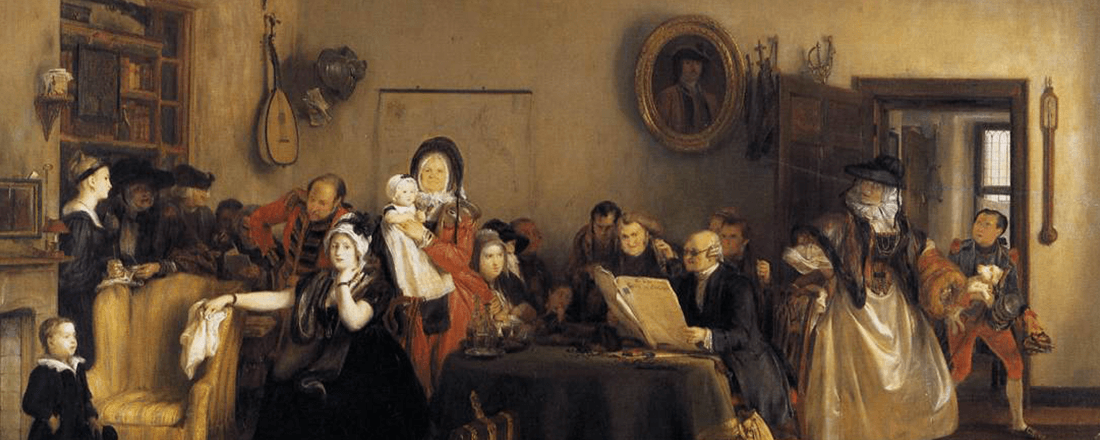
1820 oil painting by David Wilkie titled Reading the Will | Source: Wikimedia Commons
In many ways then, the most important emotional moment in the saga of will is actually when the attorney first meets with the client to discuss their estate plan. Contrary to popular opinion, it’s not the fictional “will reading.” It’s that moment where the lawyer actively listens to their client, prudently explains what the results of those decisions could be, and then charts out how to achieve those goals. “Sure, you can leave everything to your mistress, but your wife can (and probably will) elect to receive portion of your estate as she’s allowed to by law.” “Sure, you can legally disinherit your son, but he’ll contest the will and your assets will be drained away through litigation. It may not be worth it.” Giving realistic advice, rather than just mechanically determining whether something is permissible or not, is the true work of a lawyer. It’s patient, searching, and analytical work, though not usually the type that’s made-for-TV. Still, helping people answer that uncomfortable and final question of “what should happen when you die?” is every bit as dramatic as the climax of a How to Get Away with Murder episode. All that’s missing is Academy Award winner Viola Davis.
Editor’s Note: The author of this article is not a licensed attorney. The information contained in this article is not legal advice and it is not a substitute for legal advice.

